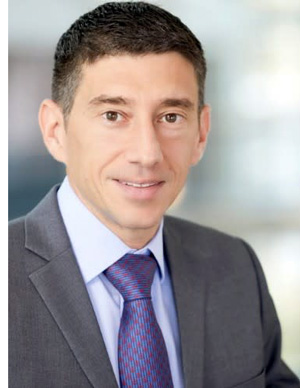 L.E.K. Consulting’s Fabio La Mola tells HealthInvestor Asia about a healthcare market going through major changes – creating significant opportunities for investors in the region.
L.E.K. Consulting’s Fabio La Mola tells HealthInvestor Asia about a healthcare market going through major changes – creating significant opportunities for investors in the region.
The current trend of consolidation in the Asian hospital sector may soon start to wane, according to Fabio La Mola, partner in L.E.K Consulting’s Singapore office and head of the firm’s Asia-Pacific Life Sciences Centre of Excellence.
“You’re seeing a significant amount of transactions around providers and healthcare provision in general, and that has been the mainstay [of investments] for a long time now,” La Mola says. “It’s a sector that’s consolidating, and that will probably play out for a little bit longer, but it’s unlikely to be a continued vector for investing.”
The multiples on recent deals have started to look “a bit high”, he says, and “at some point that consolidation trend will exhaust itself.”
La Mola believes that investors are likely to shift their attention towards other pieces of the healthcare value chain, in particular specialist facilities, such as oncology centres and cath labs, as well as primary care services, such as dentistry.
“I think actually Asia in general is tremendously underserved when it comes to specialist provision outside of hospital,” La Mola says. The current composition of the healthcare sector, which remains relatively fragmented and lacking integration, could create new opportunities for investors, he adds.
“What you have seen in Europe maybe 10 years ago – people starting to consolidate pieces of the healthcare chain, and creating referral pathways – hasn’t even started [in Asia]. So, for the provision side, I think there’s still quite a way to go in terms of potential for investment. Hospitals will remain for a bit, but I think we will see new waves of investment around other areas.”
As the head of L.E.K’s Asia-Pacific Life Sciences Centre of Excellence – an initiative that was launched in October last year in partnership with Singapore’s Economic Development Board – La Mola has been working to understand how emerging technologies, from precision medicine to artificial intelligence and big data, will impact on the healthcare sector in the region.
The growth of digital health in particular could have substantial implications for healthcare providers, La Mola says, creating new markets, such as e-pharmacies that can offer direct delivery of medications or medical devices, and disrupting others.
The global digital health market is already valued at more than $120 billion, according to figures from Zion Market Research, and is forecast to surpass $420 billion by 2024.
Among the new players in the Asian digital health space are the Chinese internet giants Tencent and Alibaba. The former has launched healthcare apps and an insurance product delivered through its messaging service, WeChat, as well as investing in diagnostic artificial intelligence; the latter offers 24-hour medicine delivery and online medical consultations.
Healthcare providers and investors need to understand how digitalisation will impact their business models over the longer term, La Mola says.
“[Technology] that helps, for example, doctors make better diagnoses, or supports electronic medical records, that’s clearly not going to change infrastructure, but it’s going to make the use of infrastructure a lot better. You can study patient pathways, you can study best ways of essentially delivering that care,” La Mola says.
Advances in data management technologies could have more profound impacts, La Mola says.
“The issue with data right now, especially in healthcare, is that it’s very siloed. Connecting behaviour with clinical data with genomics is potentially interesting but on their own, not very helpful.”
Combining all of these datasets, and applying AI and machine learning to them could offer hospitals unprecedented insights into their patients, improving their ability to make decisions about their care, but also to track them along care pathways.
La Mola says: “If you look at the care pathway for most private hospitals, it starts when the patient walks through the door and ends when the patient walks out. That’s it. A lot of times even if they are requested to follow-up they never come back, and as a hospital you never know where they are because there’s no real CRM or any real way of following up.”
With the emergence of these technologies, providers and investors need to start integrating them into their planning, La Mola adds.
“Most people are still focused on how they plan the hospital, where they put the beds, where they put the OR,” he says. “What people don’t do enough of is actually looking at what other solutions are being developed out there … Preparing yourself to potentially absorb [technology] pilots and work with some of these solutions would actually be a wise move.”